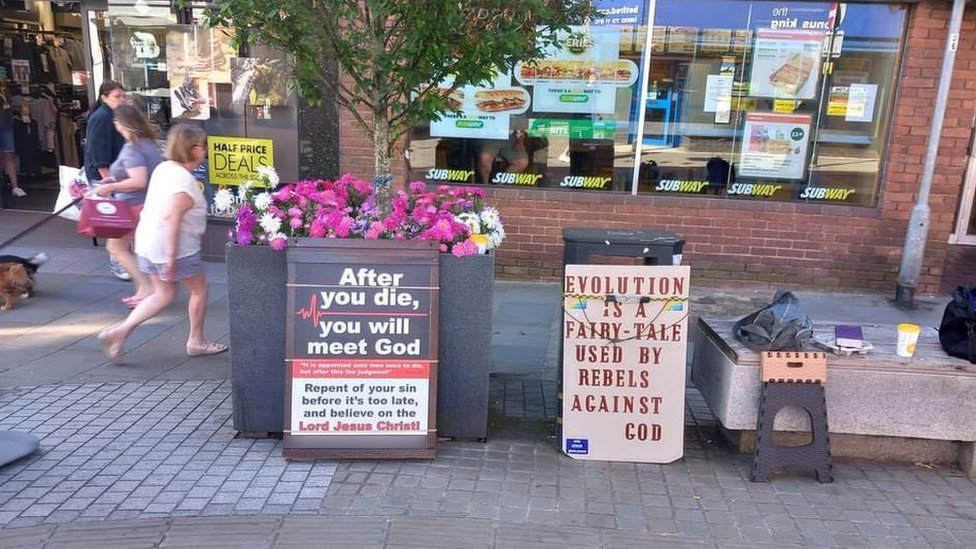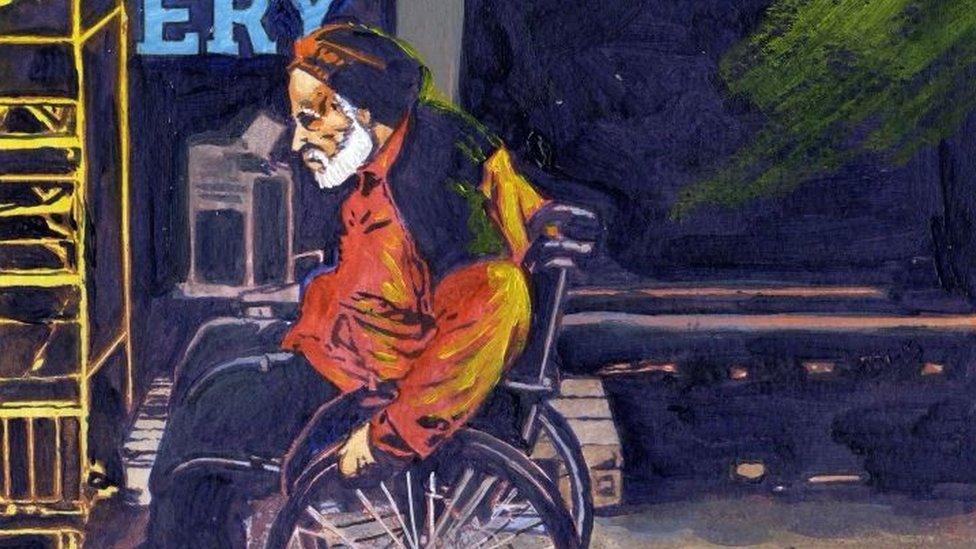Police investigate 'offensive' Leek preacher complaints
- Published

Members of local churches had been appalled by some of the preachers' comments, councillor Bill Cawley said
Town centre patrols have been stepped up after verbal clashes between a group of religious preachers and a crowd of residents, police say.
The religious group, which has been visiting Leek in Staffordshire, say they are simply reading passages from the bible.
But residents have made complaints to the police saying their material was homophobic, sexist and offensive.
Officers are continuing to speak to those involved, said police.
Local councillor Bill Cawley said he had confronted the group of three men about preaching in what he considered to be an "intrusive, aggressive and belligerent" manner.
"It goes back to July last year when I heard them talk about abortion, and women who'd had abortions were murderers, and that was the first time I'd confronted them," he said.
"It's putting people off coming into the town centre, undoubtedly and a stand has to be made."
Some people may think it was an issue of free speech, he explained, "but people have the absolute right to wander the streets and go about their business without being confronted quite aggressively by the street preachers."

The preaching is putting off visitors to the town, a councillor says
Clergy from local churches had been "quite appalled by what is going on," Mr Cawley added.
Staffordshire Police said officers had attended incidents on Derby Street in the town on 22 August and 5 September for reported issues around offensive behaviour and people using offensive language.
They were continuing to speak to those involved in relation to the reports, the force said, adding that patrols had been increased.
A spokesperson for Staffordshire Moorlands District Council confirmed it had received complaints and said: "The council is working with our partner agencies to address this issue."
Rose Simkins, chief executive of the charity Stop Hate UK said the rights of both the preachers and protesters was a "complex" issue.
"I understand that members of the public could argue that they were experiencing harassment alarm distress that could lead to a public order offence, but police haven't really had a lot of success in prosecuting people for it," she said.
"I would argue that somebody's right to speak these things shouldn't be greater than the rights of people who could be harmed by them."

Follow BBC West Midlands on Facebook, external, Twitter, external and Instagram, external. Send your story ideas to: newsonline.westmidlands@bbc.co.uk, external
Related topics
- Published7 October 2022

- Published6 October 2022
